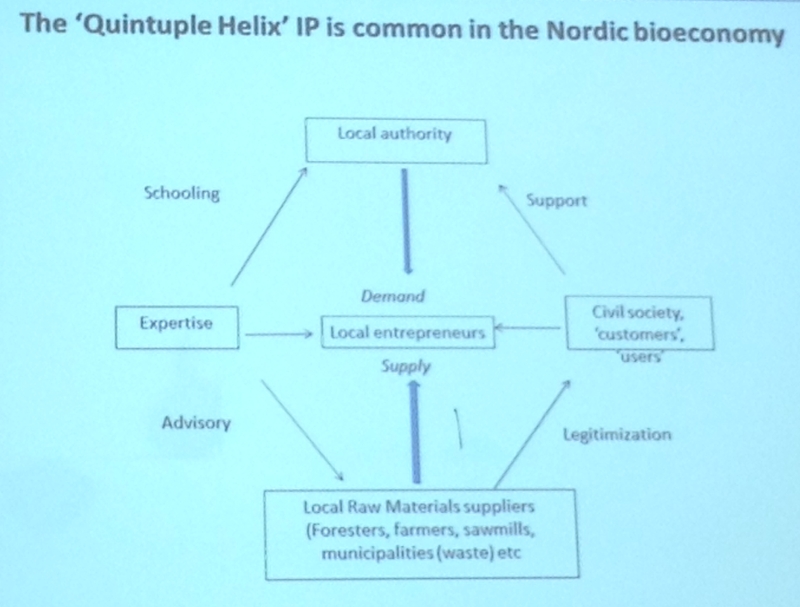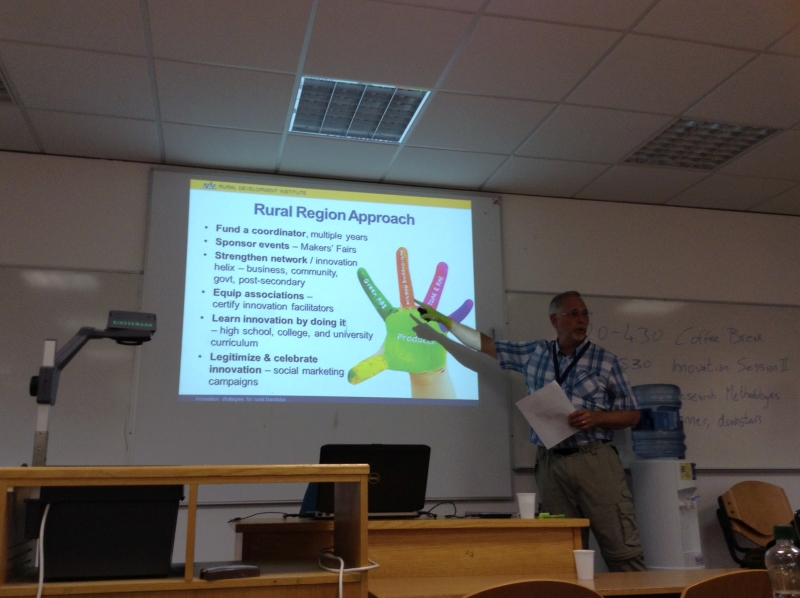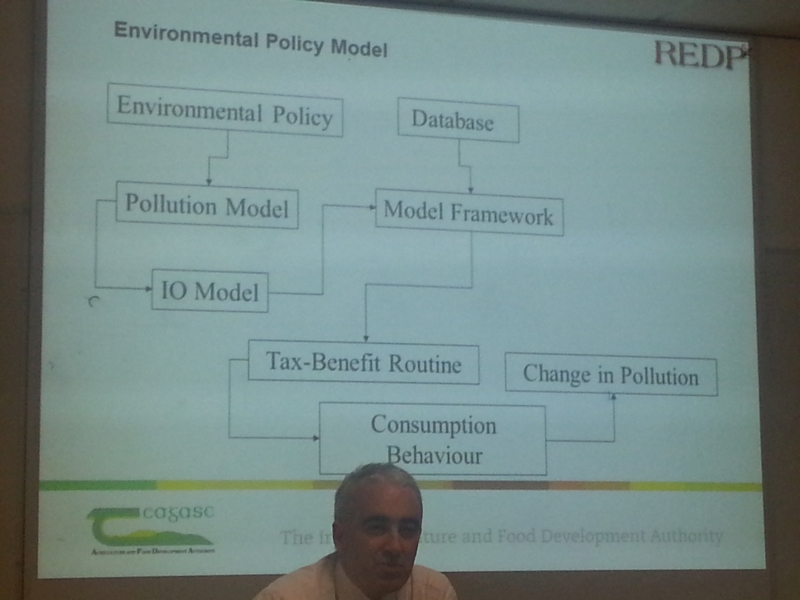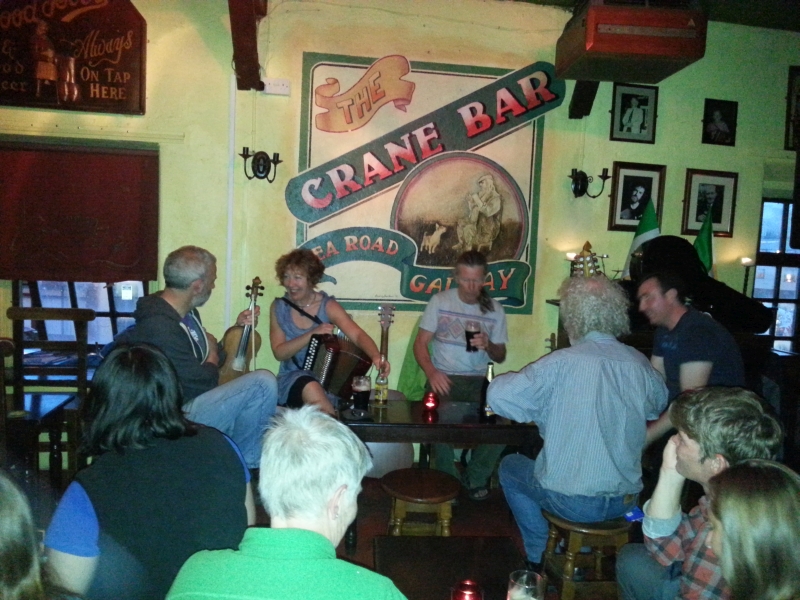By Tayna González Martin, Alessandro Politano, Tristeen Bownes, and Anne Prestvik
Today we transferred from University College Dublin to the National University in Galway and learned how traffic jams can distort even the best planned schedule!
John Bryden and Karen Refsgaard: Grounded innovation
Innovation is not just the invention and adoption of new technologies, but also how they affect economic, social and environmental factors (triple bottom line), as well as inequality and power. In short, Grounded Innovation should improve people’s lives. The research project TRIBORN showed us how the local context matters in the implementation of bioenergy. One of the results of this research is the quintuple helix innovation platform. To learn more about the TRIBORN project, visit the project website here: http://nilf.no/green_innovation_research/triborn-prosjektet
Bill Ashton: Innovation strategies for rural Manitoba
Bill’s presentation focused on the commercialization part of innovation. For rural Manitoba, they have identified 3 systemic barriers to innovation: (1) Lack of risk capital, (2) fragmented support and (3) risk aversion, especially in agriculture. To meet these challenges, they created an Innovative Rural Region Approach.
Matteo Vittauri: Social Innovation in Food Waste
Social innovation can be very important in times of crisis due to the lack of traditional welfare services previously provided by the government. One definition of social innovation includes that it should improve human well-being through collaboration and a multi-stakeholder approach. This concept has been applied to the challenge of reducing food waste by changing people’s behavior. Three good examples if this are the Disco Soup, “gleaning”, and social supermarkets. To learn more, read the following blog posts:
http://feedbackglobal.org/campaigns/gleaning-network/
http://socialsupermarkets.org/
Laura Farrell: Innovative Practices of women in Irish agriculture
The aim of the study presented by Laura Farrell was to explore the pioneering role of women in innovative farming practices. Traditionally, agriculture is very masculine and women are silent in the background. Rural restructuring made agriculture less important for rural areas, which made room for diversification, for example ecotourism. Women play a very important role in this and it empowered them. However, there is still a lack of recognition for their role.
Methodology Sessions
In the end we had parallel sessions in methodology. From Bill Reimer and Robert Zabaawa we learned that since field work takes a lot of time, making strategic comparisons and considering culture are keys to success. From Cathal O’Donoghue we learned how microsimulation can help us assess the impact of a policy. From Judy Stallmann we learned that natural experiments are a rare blessing and how we can use quasi experimental design.
Microsimulation Modelling with Cathal O’Donoghue
In the evening some of us went to Galway city to get the authentic Irish folk music experience.




